#that parallelism is actually so evident
Text
wait. if haru is katara’s suki (her ek counterpart who is in a similar position, complements and tempers her personality, they first meet in book 1 but don’t have the time to start a real relationship, but then reunite during the western air temple arc and properly get together) does that make…. jet katara’s yue (her “first love” who died in her arms). yue sweetie i am so sorry………
#haruxkatara#jetxkatara#katara#haru#jet#yue#suki#sokkaxyue#sokkaxsuki#way too many tags…. oy vey#i guess technically aang is katara’s yue#since he also dies in her arms and like yue is part spirit#but like. jet ACTUALLY dies and she can’t save him#that parallelism is actually so evident#yue sweetie im so sorry AND katara i am so sorry#also yes i do simply believe that she and haru hooked up the western air temple#it’s canon to me because toph said so and toph is always correct
117 notes
·
View notes
Text
I made some funny comics a little while ago about the potential effects of Fukuzawa's ability on Chuuya's, and how it perhaps could make it revert to a pre-Arahabaki state.
I realized later that some of you lack the context for where that came from, and that I might be creating confusion, so this is a (hopefully) comprehensive walkthrough of things we learned in Storm Bringer that lead to this conclusion.
tldr; The lab created "Arahabaki" by manipulating an ability into a destructive force. That ability existed before the lab, and the nature of that ability is heavily implied to be the power to enhance other abilities through touch.
Explanation and sources below (so you can judge yourself) ⬇
- spoiler warning for Storm Bringer, hopefully written in a way that you'd understand even if you haven't read it yet -
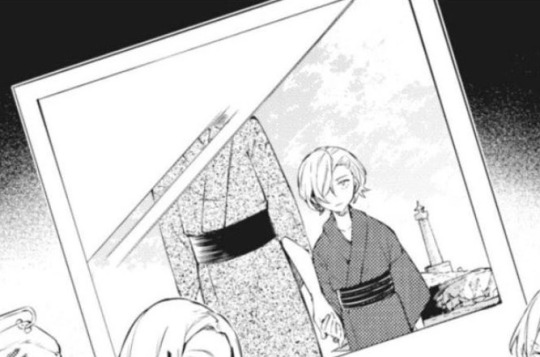
In Storm Bringer, Chuuya meets the scientist that was responsible for Project Arahabaki, Professor N.
Project Arahabaki, N explains, was the Japanese government's secret project to create an ability singularity they could have control over and freely use as a weapon.
What are singularities? Singularities are what happens when abilities clash in specific ways and create a new, unforeseen reaction. The easiest way to create a singularity is to pit two contradictory abilities against each other to create a paradox; examples included the ability to always deceive and the ability to always perceive the truth, and to have two ability users who can see into the future (*coughs* Oda and Gide) try to one-up each other. The result is usually much more powerful than the original abilities on their own.
Some singularities are said to have been explained as god-like interventions, because of their often destructive nature. This is what inspired the name "Arahabaki", after the mythical being (here's a post of the subject and I'll it link at the end too) These events are described as very rare.

Like mentioned in that passage, there is another way to create a singularity: to have a single ability user use their ability in a way that contradicts itself. This is what the lab was trying to do.
For that explanation, Professor N gives an example. He first shows a video of a child, whose face is hidden from the camera, holding a coin (described as having a certain melancoly to it), with a moon and a fox engraved on it. The video is from one of the lab's tests. The child is made to recite some activation lines, which are directly taken from one of Nakahara Chuuya's poems, Upon the Tainted Sorrow (which does mentions a fox, as a fun fact).

The coin then starts glowing, the glow turns into a black mass, and from there the experimentation goes bad: the coin starts attracting things and absorbing them, the space gets distorted, the child's vitals flatline, panic spreads and someone calls for an emergency stop, we hear a scream. The video ends.
N explains that the child in the video had the ability to enhance the ability of others. That child then used that ability on themselves, effectively enhancing the enhancement which enhanced the enhancing, in an infinite loop. That loop created a lot of energy; the surplus of energy was so intense its mass deformed space (physics!) and it created a black hole.
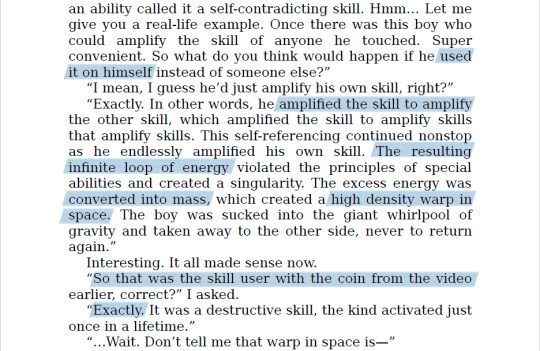
Here's where it gets tricky: N claims that child died during that accident, that the child was absorbed by the black hole created by their ability. We never actually learn their identity.
But N is a lying liar who lies; he said about one and a half truths the entire book. The only reason he was telling them any of this was that he thought he'd get rid of all of them within the next few minutes. His objective was always to regain control over Chuuya, his pet project.
Plus, during the epilogue, we learn that Chuuya was assumed to have died during the war. That's what his parents think. That's what is officially recorded.
Furthermore.
Project Arahabaki was based off French research papers; someone else had done this kind of experimentation before, and their result was Verlaine.

-

Verlaine's gravity-manipulation is a singularity. Better yet: Verlaine also has a Corruption state, named Brutalization. Their abilities are the same, because the lab copied the techniques that were used to create Verlaine when they worked on Chuuya.
Here's a passage of Dazai nullifying Corruption, at the very end of SB:

"The self-contradicting skill, which was supporting the energy of a singularity". This passage confirms that the source of Chuuya's ability is, in fact, like the child's and Verlaine's, if any doubts remained. "[...] weakening the singularity's output. It wasn't long before it returned to its normal state, and the Gate closed." The Gate refers to releasing Arahabaki, it's basically a limiter, just like the passage above when talking about Brutalization. When Dazai nullifies Corruption, he gives that limiter the opportunity to come back and seal Chuuya's power away again, but does not stop the singularity, only allows it to go back to its stable state.
From all that, we can say that Chuuya's ability wasn't always gravity manipulation, but that it was another, unconfirmed ability that was exploited in such a way that it became a permanent, stable singularity that allowed him to have control over gravity.
-
Bullet point recap:
Chuuya's gravity manipulation comes from a singularity, like Verlaine, like that child;
You need a self-referencing/self-contradicting ability to create that singularity;
Such an event is rare;
There is a substantial amount of time spent describing a "random" child that was experimented on during the war;
That child created a black hole through their singularity;
That singularity was activated using a passage from Nakahara Chuuya's poems, while holding a coin that references it;
That child supposedly died;
Chuuya's parents think he died during the war;
N is a pathological liar with an agenda.
So no, there is no "confirmation" that Chuuya's ability was ability enhancement before the lab took him. But an author writes a story with an intent, so I am asking what Asagiri's intent was when writing all this, and if perhaps we weren't indirectly given the answer already.
-
What is Arahabaki (Fifteen and Storm Bringer lore, with too many citations)
My own perceived timeline of the true events behind Storm Bringer (was originally gonna be part of this part, also with too many citations)
#the dazai parallels are a nice little bonus because we KNOW chuuya as a character was designed to match dazai#he was most literally designed to go with him and contrast him#but that's meta analysis so i didn't include it in the actual post with the rest of the textual evidence#bsd#bungou stray dogs#bungo stray dogs#bsd analysis#bsd theory#bsd meta#bsd chuuya#bsd nakahara chuuya#bsd storm bringer#bsd stormbringer#stormbringer#storm bringer#i'll reblog this to my art blog tomorrow so the people most concerned have more of a chance of seeing it#apparently i talk sometimes
1K notes
·
View notes
Text
Do you know this (noncanon) ADHD character?

Evidence below the cut!
can be pretty hyperactive, forgets things regularly (even important things, forgot he turned into a heartless in kh1), distractable, later on he seems to have some problems with emotional dysregulation. hes constantly called lazy by his friends but as soon as hes doing something he likes he has all the energy in the world, and also tends to dismiss his own intelligence despite actually being pretty smart, both of which are things that i think are decently common with undiagnosed adhd
#poll#noncanon adhd character#kingdom hearts#kh#sora#kh sora#sora kh#kingdom hearts sora#sora kingdom hearts#THIS IS GOING TO BE A LONG TAG RAMBLE#ok first sora even getting posted is like a saga#originally i was going to post him myself but had trouble verbalizing evidence#so i asked my discord friends#and then i forgot to write down what they said and lost it#then he got submitted in the initial submissions right when the blog started#but the only evidence was 'look at him lol'#so he was unpostable#then he finally got submitted again during the recent spike with actual evidence!! so i can post him now#sora is so important to me#kingdom hearts is how i found playframe and that community is a huge part of my life now#and also i spent multiple years playing a weekly ttrpg campaign in a completely homebrew kh system#and it was the most fun ive ever had in my life and i am not exaggerating#there was only one other non dm player so three of us in all#and we had such a great dynamic we are such close friends now and the dm even looked up tips for dming for adhd players#and gave my character the ability impulsiveness which turned out to be one of our most powerful abilities#(i say our bc later we got the 'sisterly bond' ability which allowed us to use some of our coplayer's abilities and impulsiveness was one)#it let me take an action during someone else's turn at the cost of one less action on my next turn. basically taking it early#making her adhd one of our most powerful tools#and my character ended up very much a sora parallel despite not living in the time of the main kh games#so yeah. kh and adhd sora specifically. very important to me
44 notes
·
View notes
Text
I’m so sorry but I think that the funniest thing they did in Top Gun Maverick was the fact that to try to beat the “Top Gun is really fucking gay” allegations they paired Mav up with a different woman this time but in doing so accidentally validated an entirely new gay ship. It’s like. Hey. Lean in real close. Hey. Mav’s got a new girlfriend this time and they’re exes with a fraught past but over the course of the movie make up and get back together, isn’t that so romantic? And then five feet away from all that shit Rooster and Hangman are just straight up saying they have an history with each other and they hold an intense rivalry before they eventually get over their differences and become friends and all the while Rooster is telling Hangman he looks good for the fiftieth fucking time that day and they keep playing romantic songs to piss each other off. The most hilarious thing is that the writers constantly use Maverick’s romances from both movies and basically parallel the only straight relationships with Rooster and Hangman’s relationship, and it’s like? Is this intentional? Is there something you want to tell us?? Because those two have STRONG hostile ex boyfriend energy if i’ve ever seen it, and if the writers want to convince me they’re straight they have another thing coming. If parallels with the only romance on screen then why no canon ex boyfriends. If parallels with both couples from both movies then why no gay. Hmm. Riddle me that Tom Cruise
#tom pls take a break from your scientology bullshit the aliens can wait i want to know if this was fucking intentional or not#because the evidence is not super subtle#these naval aviators are fruity as hell#i literally feel like im losing my mind bc like?? if not meant to be romantic then why parallel the other romances??#im sorry ive been going literally insane over this movie for the past week#also glen powell writing literal fanfiction on twitter.com does not help the case that they arent 10000000% a thing#mr ''yeah miles and i send each other stuff of people wanting rooster and hangman to get together''#actually. who tf are you fooling#that man did not need to fucking specify who was on the top bunk and who was on the bottom. like#pulling my hair out they fucking know what they were doing. publicly declaring nickname headcanons and top/bottom dynamics?? what the FUCK#sry to all my mutuals who arent neck deep in the top gun movies but ive been having a fantastic time#top gun fucking slaps and everyone should go see it because its a stupid amount of fun#specifically top gun maverick#the first is good but the cinematography and action in tgm is fucking outstanding#the action senes are so well shot and it makes me want to willingly get into a fighter jet for some goddamn reason (plane go vroom)#not in danger of susceptibility to military propaganda but also consider. gay bitches in planes#top gun#top gun maverick#top gun: maverick#pete maverick mitchell#hangman#rooster#jake hangman seresin#bradley rooster bradshaw#hangster#sereshaw#movies#andis thought geyser
51 notes
·
View notes
Text
if I said that you can make a very reasonable argument that the specific reason why Katma was so gungho about the halarisia relationship in universe was because it was a way to create a stronger connection between hal and the glc and make sure he doesn't betray them again, would y'all judge me
#I have actual evidence for this#you can really see it in the way she's trying to create parallels between her and john and hal and arisia and the way she talks about arisi#being a good green lantern; she's a good green lantern she won't let hal leave again#she's a good green lantern she'll make it so that hal doesn't have to choose between love and the glc#Red Reads#yeah I was writing the arisia fic again what about it
3 notes
·
View notes
Photo
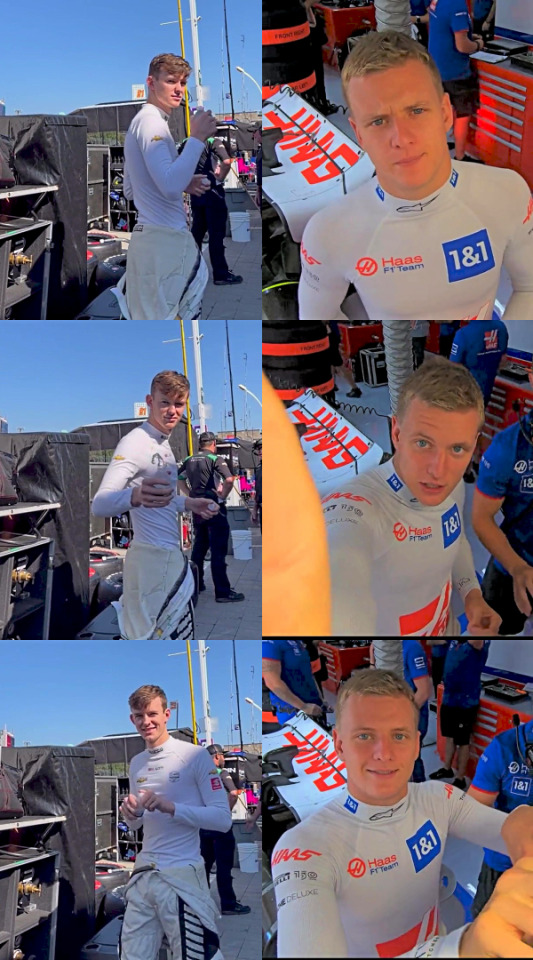
CALLUM ILOTT and MICK SCHUMACHER
Fighting marketing cameras
#schulott#callum ilott#mick schumacher#this is. parallelism.#schulott is so real actually#the evidence is irrefutable. they are boyfriends.
81 notes
·
View notes
Text
I read someone say: “Mike projected his misery over his fight with Will onto the roller skate incident” and it was honestly one of the smartest things anyone has ever said. This might’ve been obvious but seeing it written down really opened my third eye. Unfortunately I can’t remember who said it ://
read the tags for a little but more elaboration and another smart thing I said lmao
#mike was never that mad about the roller skate incident#he wasn’t mad at el for it#it still shocked him but the true thing he was mad about was his fight with will#but he transferred that misery over their fight to el smacking angela in the face#because that was the ‘normal’ thing to feel mad about atm#that’s why he said ‘she didn’t look fine’ during dinner#it’s not that he was actually that invested in it#but he simply projected all his misery onto it#so he said that because he tricked himself to believe that he’s really riled up about what happened with El and Angela#even though that’s not actually the case#i think his comment at the dinner table also has another meaning#the roller skate incident is paralleling what happened with the upside down over the years#and it shows that while everyone somehow manages to drown it out and pretend that everything’s fine#mike can’t do that#mike cannot simply pretend that everything’s fine because it’s not#he’s still deeply traumatized by what happened and he can’t cope#he’s living through all the consequences of the ud [like his deteriorating mental health] and that’s clear evidence that nothing is fine!#mike isn’t fine#and it’s probably very frustrating that everyone else seems to be content with pretending it is#byler#stranger things#mike wheeler#will byers#rink o mania#rink o mania fight
30 notes
·
View notes
Text

🫖🫖🫖
#i literally used to ship g*raskier so dont jump down my throat abt this lmao. i grew and matured and my tatses improved 💅#and no i havent seen s3 idgaf abt any evidence u could tell me abt from it. i havent gotten drunk enough recently to want to watch it lmao#i just... there's SO many similarities and parallels between these two ships that i find INTERESTING. the most intersting bit is how one ha#actually tens of thousands of fics on the archive and the other has like 400. hmmm. i wonder why!! 🤔#len speaks#anti twn#twn critical
4 notes
·
View notes
Photo

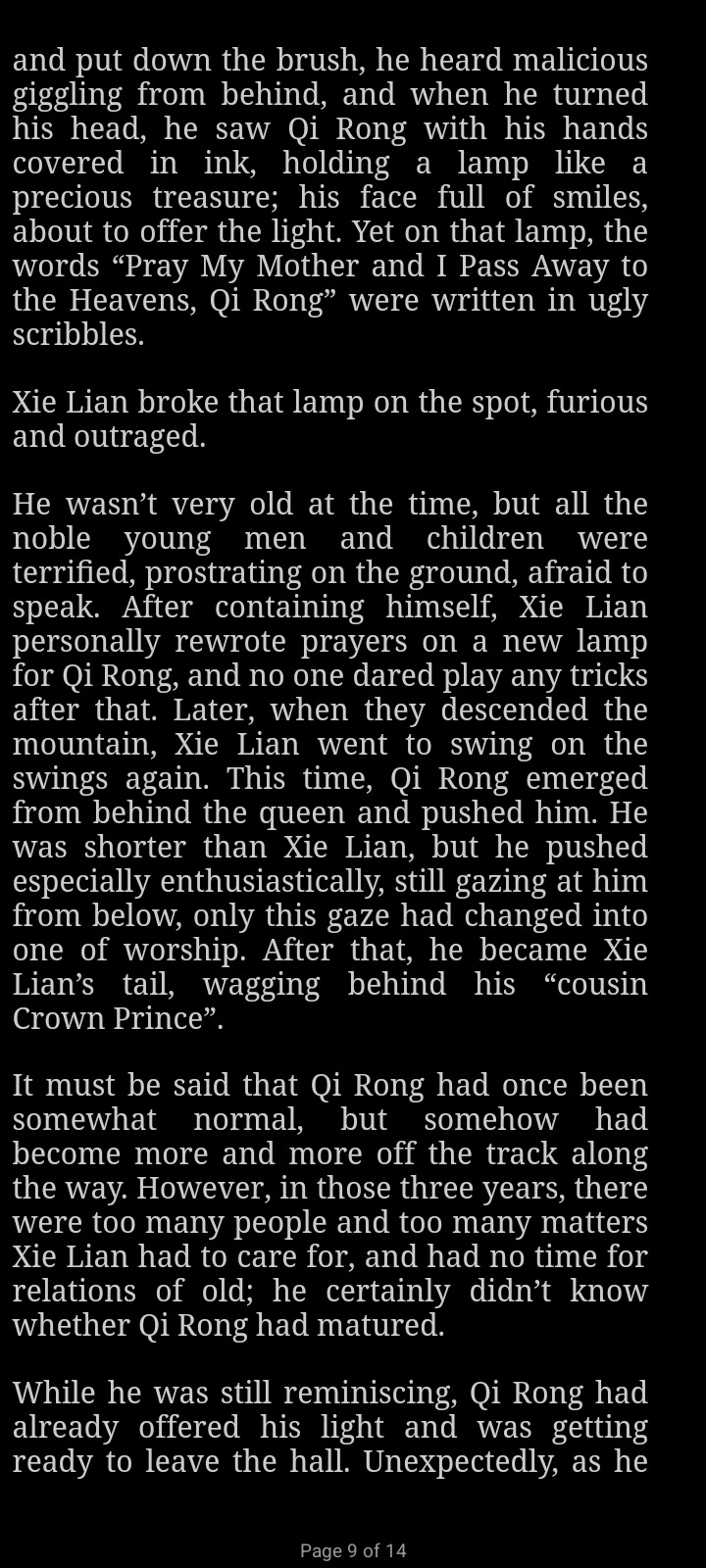
actually its a lot harder to be annoyed with qi rong when you realize he’s a direct parallel to hua cheng
#also that was so messed up sjgdfjsdgkfhld#dont get me wrong i still want see xie lian beat the hell out of him but...wait no actually i still do really want to see that#also! the entirety of book 2 is about disproving xie lian's whole i would give another cup shtick but i think its also evident in how he#treats qi rong like are you really gonna do something or you just gonna make it someone else's problem *eyebrow raise*#god. i love book 2 xie lian hes so flawed and arrogant and trying his best and practically a child AUGH#also i read the land of the tender scenes this time. last time i skipped it because i had heard things about it but. i dont understand how#anyone can get the idea that it was meant to be an arousing scene the text makes it clear that it was a deeply violating experience for both#of them??????? unless mxtx said something about it but even then???????#also the fact that it was bwx who set it up. my guy why are you so psychosexually obsessed with xie lian!!!!!!???????? get a job!!!!!!!!!!#tgcf#also theres this scene that parallels one after the temple where a guy that gave him an umbrella gets the plauge and its so nice to see#xie lian internalize the idea that the ppl who help him will be hurt >:)
9 notes
·
View notes
Note
The bento counter clip you shared is EXTREMELY funny (if it's not a glitch I'd love to try and trigger it), but I couldn't help notice the flower petal-shaped particles in Jo's "heat trail" for the first time. I somehow managed to overlook them until now.
RGGJo also has petals in his heat trail, and personally I've always liked to link it to the fact he canonically wears perfume. What if 7Jo wears a floral scent too...? Would be neat, given I can't tell which of them is supposed to be the one with the sensitive nose lol
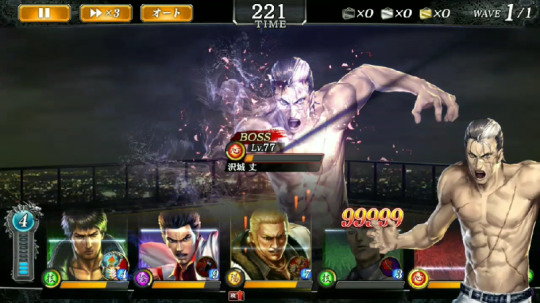
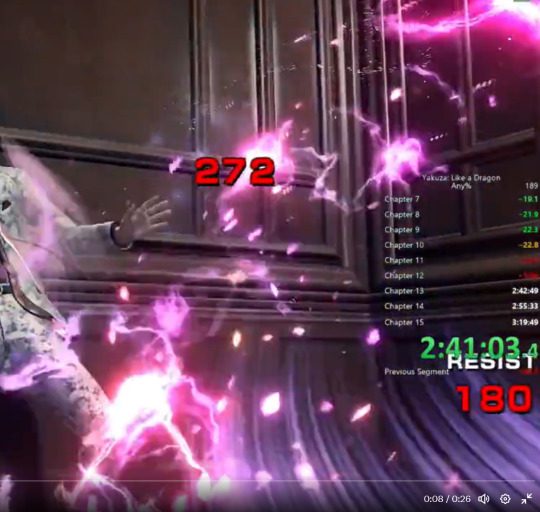
Jo’s counter is actually a programmed thing from my understanding: he is meant to deflect regular/MPless attacks and items, but considering most people use exclusively special attacks at this point I reckon not a lot of people catch it (and as for items, you’re either using a rocket launcher/projectile or you’re too far for him to do... that LMAO). Still, it’s going to entertain me for a while the fact he CAN just cancel your healing
And I’m SO glad you noticed the petals too! I didn’t catch that they were a thing for RGGJo as well, but I thought they were a cute detail for Y7Jo when I first noticed them a while back! It’s especially sweet if we put it in the context of a reference to him and perfume :)
#snap chats#i answer worse while on mobile excuse me but im gonna be out for a while but i really wanna answer this#ive personally adopted Y7Jo having the sensitive nose but who’s to say it cant be either honestly#which reminds me i do wanna do something silly with that fact..#mothers day is tomorrow maybe i can think of something with flowers or something lmao#Maybe I Gave Myself A Brain Blast Actually hm... ignore me im rambling to myself..#ill stop there for now in case i DO think of somethig and then it can be a surprise lmao#but back to the Main Discussion of the flowers i guess its a nice callback to his more ‘romantic’ counterpart so to speak#also i just love flowers. guilty as charged#Rambling Part 2 but ive somehow reminded myself of hijikata’s sword having plum petals on it..#‘snap how did you get there’ well i was thinking about how jo uses okita’s sword in this fight and then i thought of The Mine Parallel#and i remembered hijikata evidently and i was like Oh Yeah#ignore this part this isnt anything significant just me rememberin fun facts#if youve read down here tho ill let you go LMAO ty for sendin an ask in !#ALSO FORGOT TO SAY THIS ON THE RECENT ASK YOU SENT i totes dont mind this smaller asks in-between the larger ones !#i always love getting asks and i love chattin so ask away as much as you like !#ok ill let you go fr now LMAO#i hate rambling on mobile cause i cant check my tags.. lets just hope im making any sense here
4 notes
·
View notes
Note
don't know about gabrielle but nicki will for sure have green eyes.. they're going to play up the similarities with that i think instead of making them literally twins
oh that could be interesting too i forgot about nicki . exciting prospect. matching w gabrielle is still the more fucked up one so i want that more but thats also a possibility
#theyre not making them physically resemble one another as humans like that would be logistically difficult and narratively boring#lestat said you have no twin!#so the eyes are an option. but they could also not have them resemble each other remotely like w antoinette#and the parallels are still evident#also this is controversial and i may b just forgetting key details but i dont actually think louis and nicki are that similar in personalit#besides in terms of self destructive depression. and bourgeois background#like louis would NEVER run away from home at 18 to pursue his true passions#iwtv
4 notes
·
View notes
Text
okay I'm on chapter 5 rn but chapter 2 is a piece of work. like using a ball and cup as a metaphor for why izzy is alive is so stupid (also so unnecessarily long)
#like theres indestructible fucker#theres the fact he aimed a bullet at his head fired and lived#theres the seagull who represents buttons whos been called seawitch and literally represents transformation#theres also izzy's death paralleling lucius' in s1 which since lucius is alive only leads me to one conclusion#theres also con posting izzy artwork that had immortal unicorn written prominently on it about the time the ep premiered#theres david who liked a tweet strongly implying sea witch buttons would resurrect izzy#and also made his own post about izzy being an important part of the show#theres so much good evidence to actually put forth instead of going with the magic trick metaphor#but i guess these kinds of points would only make sense if you were capable of analyzing themes and ideas properly
0 notes
Text
oh yeah i finished house of leaves. might have to go through and read it again since i read through some theories/possible readings and now i feel like i missed so much
#mine#and i thought i was being so clever noticing the non sum qualis eram#finding and decoding the morse code#noticing all these parallels between people who shouldn’t know each other (zampanò and johnny’s mother both say ‘torn to pisces’)#and more stuff with weird parallels and references that make no sense#eventually i decided that it was entirely likely that johnny just made up all of zampanò’s writings#then also i go online and see theories that zampanò is real and made up johnny and actually there is quite a lot of evidence for that#or even stuff about johnny’s mom creating things which would explain the torn to pieces thing#*pisces#actually i thought i was being silly at the beginning when i noticed zampanò happened to say ‘could of’ which is something johnny only does#more blurring between the narrators#man this is just unreliable narrators: the book
1 note
·
View note
Text
I've seen a lot of people writing Danny as a space ancient and Dan and Dani as ghosts with moon and sun cores, being sort of parts, versions of Danny and therefore weaker. Now, consider: Dan and Dani are both powerful ghosts with really cool cores and stuff but Danny is just some guy™
Dan, who came from an alternate timeline and is kind of from the future but also not, is Clockwork's apprentice and will eventually become an ancient of time. He probably only agreed to have some lessons with Clockwork to understand better what happened to him, but he enjoys his apprenticeship now.
Dani, with her love of travelling, loves seeing all the different places the world offers to her, and that includes space and different planets and maybe even parallel universes, and she accidentally ends up being an apprentice of the space ancient. For now she's probably a baby ancient of freedom or something like that, but she might become an ancient of space in the future.
We can also have something like Dan having a core of destruction or Dani being the Speed Force if you want it to be dcxdp, or any headcanon of yours about their cool powers.
And then there's Danny. And yeah, everyone knows that he's super powerful, but also he's just some guy.
It can go different routes. Does everyone know that Danny is just Danny? Or do they think that with siblings (well, technically a clone and an alternate version, but whatever) so powerful, he must be even stronger? Is Danny actually something terrifyingly eldritch and ancient and strong, almost a god, but he just doesn't know himself? Or is he just really some guy?
Now, because it's obvious that I have a dcxdp brainrot, have a regular "JL summons/meets a powerful ghost" but its Dan and Dani, and they keep mentioning their original/brother who won a fight against them at some point. The JL is very concerned about Dan and Dani's godlike powers, and they can't imagine what Danny is like. And then they meet him (in his human form), and it's just a young adult in casual clothes, very friendly and helpful, with no evident powers. Imagine the confusion. Imagine Dan and Dani, radiating power, in their eldritch ghost forms, admitting that fighting Danny for real is the dumbest thing to do and not even they would succeed... And then there's Danny is jeans and silly t-shirt, waving shyly.
#DO YOU SEE MY VISION#please#I'm not getting enough sleep#my brain is obsessed with weird stuff#I want Sam who barely looks human because she's one with nature#I want Tucker who looks regal and dangerous in his pharaoh clothes#I want Dan look like he can destruct the Earth with a wave of his hand#I want Dani who is everything there is in the world and you feel it in your bones#I want Jazz who sees your soul and your mind and you know it and there's nowhere to run#I want JL to meet all of them before meeting Danny#I want all of them to admit in their different ways that Danny is the greatest of them#I want JL to be VERY worried about meeting Danny#and then I want Danny to be as normal and friendly as possible#and I want him to treat all those eldritch creatures (his family and friends) as they're regular humans and nothing is weird about them#just hugs and love and praises#because it would cause so much confusion#this is NOT ghost king Danny#unless it is but he doesn't know (and either no one knows or no one told him because it's funnier this way and he's super oblivious)#dpxdc#dcxdp#dp x dc#dc x dp#DPxDC#DCxDP#danny phantom#isn't a crossover if you don't want it to be#could be any crossover if you do want it to be
2K notes
·
View notes
Text
If there's one thing TGWDLM fans are gonna do, it's think about the implications. And the implications of the opening number are crazy.
So. We know that the show isn't completely chronological since the opening number takes place before the meteor hits. So that song is a sort of "flash forward" moment. But when you think about it, we don't really know how far in the future it takes place.
What we do know is that by the time it's happening, Emma is infected. She has a little solo in it singing about how Paul is pining over a barista

And we know that this is meant to be an infected Emma specifically. Lauren had other characters in the show, if they wanted to avoid the Emma implication they would've just dressed her as one of those.
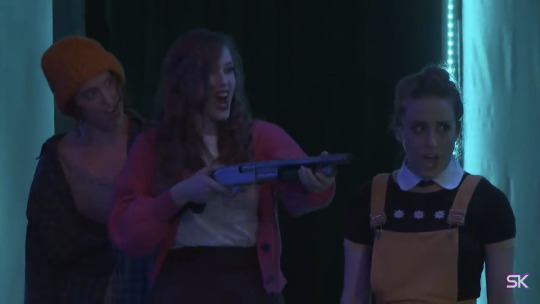
So we know this is meant to be Emma.
And Emma isn't infected until the very end of the show. She's dragged off stage during the credits. So since she's infected in the opening number, we know the number takes place after the events of the show.
Another important detail is that Paul is infected before Emma. He's the one that passes it on to her.
So back to the opening number, Emma is infected. Which means by just following a simple timeline, Paul must also be infected. He should be singing and dancing, right?
But that's not what happens. Paul misses his entrance.

If Paul is infected, then there's no reason he should be missing his entrance. Furthermore, if he's a part of a hive mind, there's no reason other members of the same hive mind shouldn't know where he is. They are literally all connected by one brain, and yet both Mr. Davidson and Bill express they have no clue where he went.
What I'm saying is that Paul is not infected. He was infected (again, we know that because Emma is infected and he was infected before her) but now he's not anymore.
I'm saying there's a way out of the hive, and Paul found it. That's the only explanation that makes sense given the facts of the situation. Sometime after the events of tgwdlm, Paul is able not only to break out the hive mind, but to hide from it.
And if he broke out, others could do the same. Maybe even Emma.
Edit because a countertheory has emerged:
Yes it's possible that everyone is infected the entire time and the show itself is just Pokey replaying the events for the fun of it. But it seems unlikely to me.
First of all, each of the Lords in Black has a distinct personality. They all are evil, but within that they seems to fall somewhere on a spectrum of "silly billy" to "prick." For example, Tinky is more of a silly billy. He toys with humans without much of a motive and more for just shits and giggles. But in every instance, Pokey's more on the extreme side of prick.
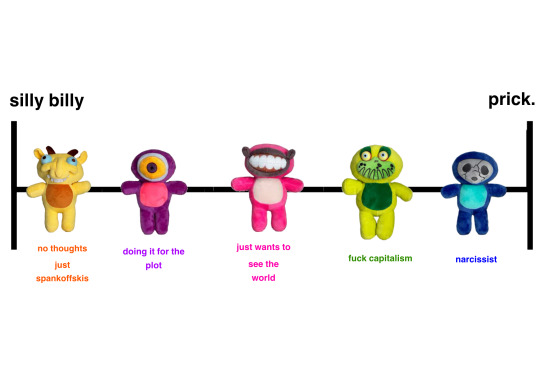
He's one of the few with an actual motive behind what he does. In Yellowjacket, it's confirmed that Pokotho hates the sound of anyone's voice except for his own. The events of TGWDLM don't happen because Pokey is bored, they happen because he is executing a plan. So I don't think that he would just have them play out their little scenario just to entertain him, especially just one small island? I just feel like he'd be more focused on world domination.
If the theory is that all this is happening after Pokey's already taken over the whole world, no one was successful in stopping him, then yes it's plausible, but still weird. There are a strange amount of things in that show you just think an eldritch god wouldn't include.
Edit 2: New evidence has emerged???
The Guy Who Didn't Like Musicals is loosely based off of Invasion of The Body Snatchers. Paul's last name is even a nod to the main character, Matthew. At the end of the film, Matthew survives, and continues living among the infected, pretending to be one of them. And wouldn't that be just such a fun little parallel...
Obviously it doesn't prove anything but the source material doesn't lie folks.
#the implications#starkid#hatchetfield universe#hatchetfield#paul matthews#emma perkins#tgwdlm#the guy who didn't like musicals#npmd#black friday musical#theory#fan theory#jon matteson#lauren lopez
2K notes
·
View notes
Text
Kelly and Zach Weinersmith’s “A City On Mars”
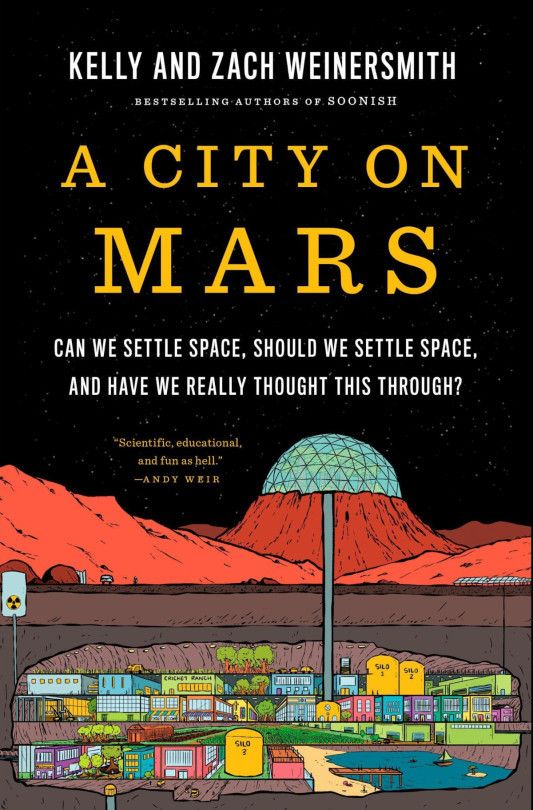
In A City On Mars, biologist Kelly Weinersmith and cartoonist Zach Weinersmith set out to investigate the governance challenges of the impending space settlements they were told were just over the horizon. Instead, they discovered that humans aren't going to be settling space for a very long time, and so they wrote a book about that instead:
https://www.acityonmars.com/
The Weinersmiths make the (convincing) case that ever aspect of space settlement is vastly beyond our current or reasonably foreseeable technical capability. What's more, every argument in favor of pursuing space settlement is errant nonsense. And finally: all the energy we are putting into space settlement actually holds back real space science, which offers numerous benefits to our species and planet (and is just darned cool).
Every place we might settle in space – giant rotating rings, the Moon, Mars – is vastly more hostile than Earth. Not just more hostile than Earth as it stands today – the most degraded, climate-wracked, nuke-blasted Earth you can imagine is a paradise of habitability compared to anything else. Mars is covered in poison and the sky disappears under planet-sized storms that go on and on. The Moon is covered in black-lung-causing, razor-sharp, electrostatically charged dust. Everything is radioactive. There's virtually no water. There are temperature swings of hundreds of degrees every couple of hours or weeks. You're completely out of range of resupply, emergency help, or, you know, air.
There's Helium 3 on the Moon, but not much of it, and there is no universe in which is it cheaper to mine for Helium 3 on the Moon than it is to mine for it on Earth. That's generally true of anything we might bring back from space, up to and including continent-sized chunks of asteroid platinum.
Going to space doesn't end war. The countries that have gone to space are among the most militarily belligerent in human history. The people who've been to space have come back perfectly prepared to wage war.
Going to space won't save us from the climate emergency. The unimaginably vast trove of material and the energy and advanced technology needed to lift it off Earth and get it to Mars is orders of magnitude more material and energy than we would need to resolve the actual climate emergency here.
We aren't anywhere near being a "multiplanetary species." The number of humans you need in a colony to establish a new population is hard to estimate, but it's very large. Larger than we can foreseeably establish on the Moon, on Mars, or on a space-station. But even if we could establish such a colony, there's little evidence that it could sustain itself – not only are we a very, very long way off from such a population being able to satisfy its material needs off-planet, but we have little reason to believe that children could gestate, be born, and grow to adulthood off-planet.
To top it all off, there's space law – the inciting subject matter for this excellent book. There's a lot of space law, and while there are some areas of ambiguity, the claims of would-be space entrepreneurs about how their plans are permissible under the settled parts of space law don't hold up. But those claims are robust compared to claims that space law will simply sublimate into its constituent molecules when exposed to the reality of space travel, space settlement, and (most importantly) space extraction.
Space law doesn't exist in a vacuum (rimshot). It is parallel to – and shares history with – laws regarding Antarctica, the ocean's surface, and the ocean's floor. These laws relate to territories that are both vastly easier to access and far more densely populated by valuable natural resources. The fact that they remain operative in the face of economic imperatives demands that space settlement advocates offer a more convincing account than "money talks, bullshit walks, space law is toast the minute we land on a $14 quadrillion platinum asteroid."
The Weinersmiths have such an account in defense of space law: namely, that space law, and its terrestrial analogs, constitute a durable means of resolving conflicts that would otherwise give rise to outcomes that are far worse for science, entrepreneurship, human thriving or nation-building than the impediments these laws represent.
What's more, space law is enforceable. Not only would any space settlement be terribly, urgently dependent on support from Earth for the long-foreseeable future, but every asteroid miner, Lunar He3 exporter and Martian potato-farmer hoping to monetize their products would have an enforcement nexus with a terrestrial nation and thus the courts of that nation.
But the Weinersmiths aren't anti-space. They aren't even anti-space-settlement. Rather, they argue that the path to space-based scientific breakthroughs, exploration of our solar system, and a deeper understanding of our moral standing in a vast universe cannot start with space settlements.
Landing people on the Moon or Mars any time soon is a stunt – a very, very expensive stunt. These boondoggles aren't just terribly risky (though they are – people who attempt space settlement are very likely to die horribly and after not very long), they come with price-tags that would pay for meaningful space science. For the price of a crewed return trip to Mars, you could put multiple robots onto every significant object in our solar system, and pilot an appreciable fleet of these robot explorers back to Earth with samples.
For the cost of a tiny, fraught, lethal Moon-base, we could create hundreds of experiments in creating efficient, long-term, closed biospheres for human life.
That's the crux of the Weinersmiths' argument: if you want to establish space settlements, you need to do a bunch of other stuff first, like figure out life-support, learn more about our celestial neighbors, and vastly improve our robotics. If you want to create stable space-settlements, you'll need to create robust governance systems – space law that you can count on, rather than space law that you plan on shoving out the airlock. If you want humans to reproduce in space – a necessary precondition for a space settlement that lasts more than a single human lifespan – then we need to do things like breed multiple generations of rodents and other animals, on space stations.
Space is amazing. Space science is amazing. Crewed scientific space missions are amazing. But space isn't amazing because it offers a "Plan B" for an Earth that is imperiled by humanity's recklessness. Space isn't amazing because it offers unparalleled material wealth, or unlimited energy, or a chance to live without laws or governance. It's not amazing because it will end war by mixing the sensawunda of the "Pale Blue Dot" with the lebensraum of an infinite universe.
A science-driven approach to space offers many dividends for our species and planet. If we can figure out how to extract resources as dispersed as Lunar He3 or asteroid ice, we'll have solved problems like extracting tons of gold from the ocean or conflict minerals from landfill sites, these being several orders of magnitude more resource-dense than space. If we can figure out how to create self-sustaining terraria for large human populations in the radiation-, heat- and cold-blasted environs of space, we will have learned vital things about our own planet's ecosystems. If we can build the robots that are necessary for supporting a space society, we will have learned how to build robots that take up the most dangerous and unpleasant tasks that human workers perform on Earth today.
In other words, it's not just that we should solve Earth's problems before attempting space settlement – it's that we can't settle space until we figure out the solutions to Earth's problems. Earth's problems are far simpler than the problems of space settlement.
As I read the Weinersmiths' critique of space settlement, I kept thinking of the pointless AI debates I keep getting dragged into. Arguments for space settlement that turn on existential risks (like humanity being wiped out by comets, sunspots, nuclear armageddon or climate collapse) sound an awful lot like the arguments about "AI safety" – the "risk" that the plausible sentence generator is on the verge of becoming conscious and turning us all into paperclips.
Both arguments are part of a sales-pitch for investment in commercial ventures that have no plausible commercial case, but whose backers are hoping to get rich anyway, and are (often) sincerely besotted with their own fantasies:
https://locusmag.com/2023/12/commentary-cory-doctorow-what-kind-of-bubble-is-ai/
Both AI and space settlement pass over the real risks, such as the climate consequences of their deployment, or the labor conditions associated with their production. After all, when you're heading off existential risk, you don't stop to worry about some carbon emissions or wage theft.
And critically, both ignore the useful (but resolutely noncommercial) ways that AI or space science can benefit our species. AI radiology analysis might be useful as an adjunct to human radiological analysis, but that is more expensive, not less. Space science might help us learn to use our materials more efficiently on Earth, and that will come long before anyone makes rendezvous with a $14 quadrillion platinum asteroid.
There are beneficial uses for LLMs. When the Human Rights Data Analysis Group uses an LLM to help the Innocence Project New Orleans extract and categorize officer information from wrongful conviction records, they are doing something valuable and important:
https://hrdag.org/tech-notes/large-language-models-IPNO.html
It's socially important work, a form of automation that is an unalloyed good, but you won't hear about it from LLM advocates. No one is gonna get rich on improving the efficiency of overturning wrongful convictions with natural language processing. You can't inflate a stock bubble with the Innocence Project.
By the same token, learning about improving gestational health by breeding multigenerational mouse families in geosynchronous orbit is no way to get a billionaire tech baron to commit $250 billion to space science. But that's not an argument against emphasizing real science that really benefits our whole species. It's an argument for taking away capital allocation authority from tech billionaires.
I'm a science fiction writer. I love stories about space. But I can distinguish fantasy from reality and thought experiments from suggestions. Kim Stanley Robinson's 2015 novel Aurora – about failed space settlement – is every bit as fascinating and inspirational as "golden age" sf:
https://memex.craphound.com/2015/11/02/kim-stanley-robinsons-aurora-space-is-bigger-than-you-think/
But still, it inspired howls of outrage from would-be space colonists. So much so that Stan wrote a brilliant essay explaining what we were all missing about space settlement, which I published:
https://boingboing.net/2015/11/16/our-generation-ships-will-sink.html
With City on Mars, the Weinersmiths aren't making the case for giving up on space, nor are they trying to strip space of its romance and excitement. They're trying to get us to focus on the beneficial, exciting, serious space science we can do right now, not just because it's attainable and useful – but because it is a necessary precondition for any actual space settlement in the distant future.

If you'd like an essay-formatted version of this post to read or share, here's a link to it on pluralistic.net, my surveillance-free, ad-free, tracker-free blog:
https://pluralistic.net/2024/01/09/astrobezzle/#send-robots-instead
#pluralistic#books#reviews#space#bezzles#mars#spacex#robots#science#space science#space travel#space settlement#space colonization
1K notes
·
View notes